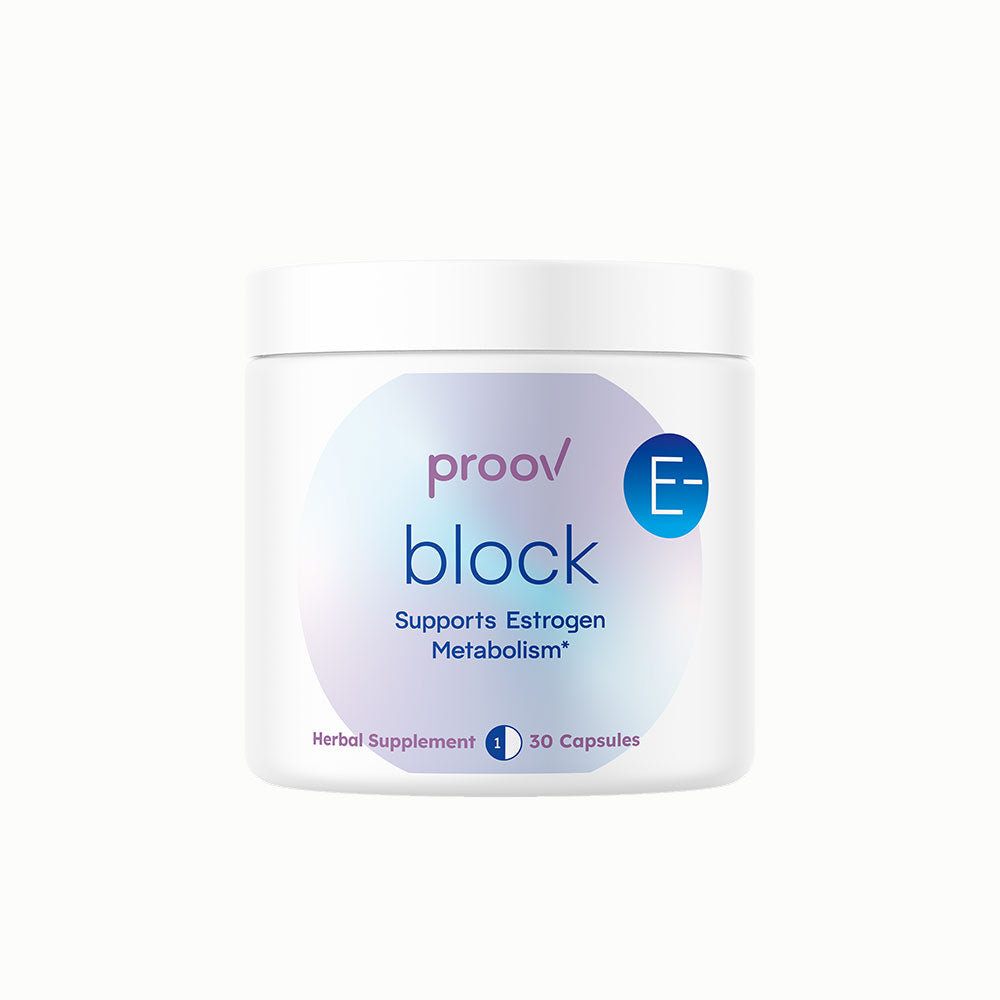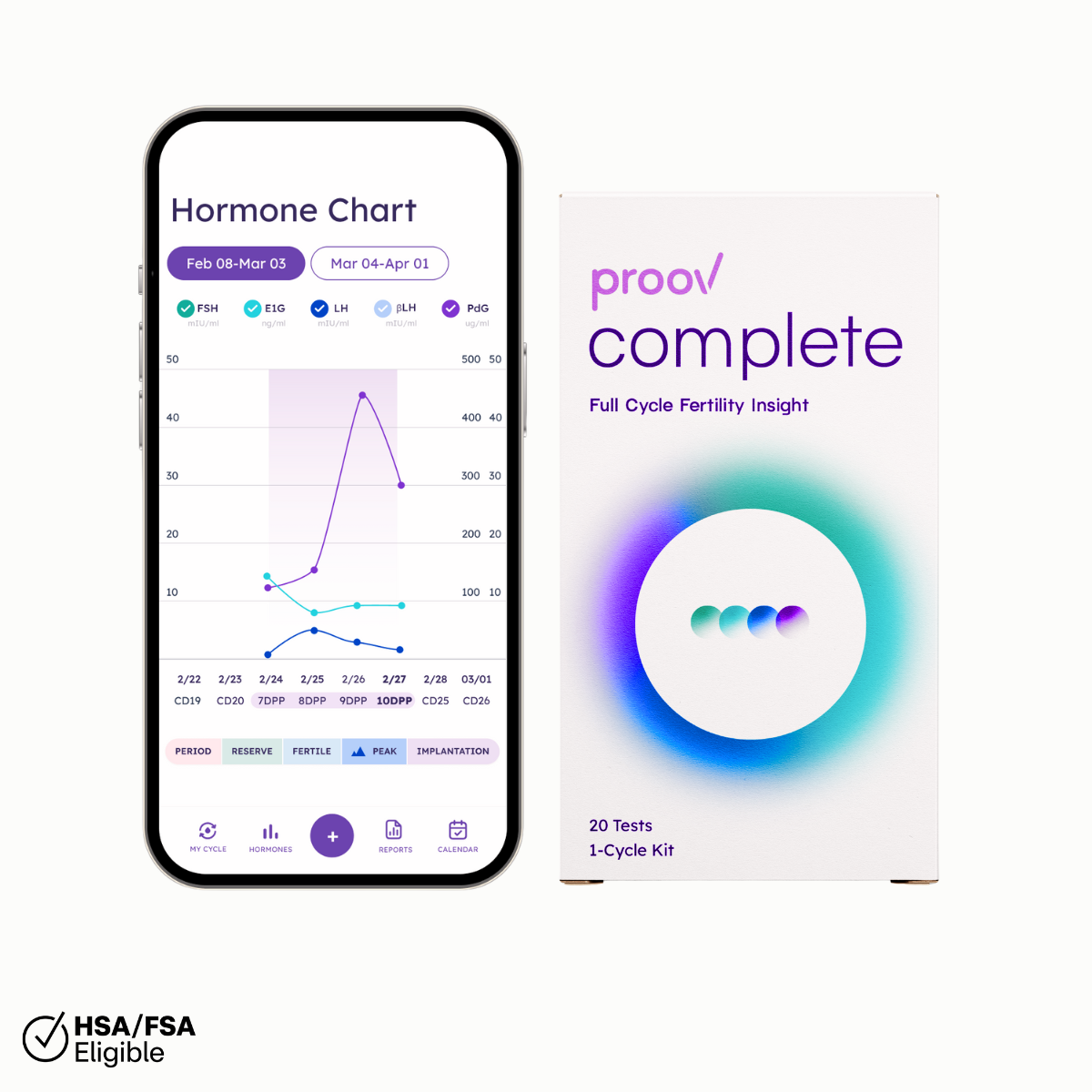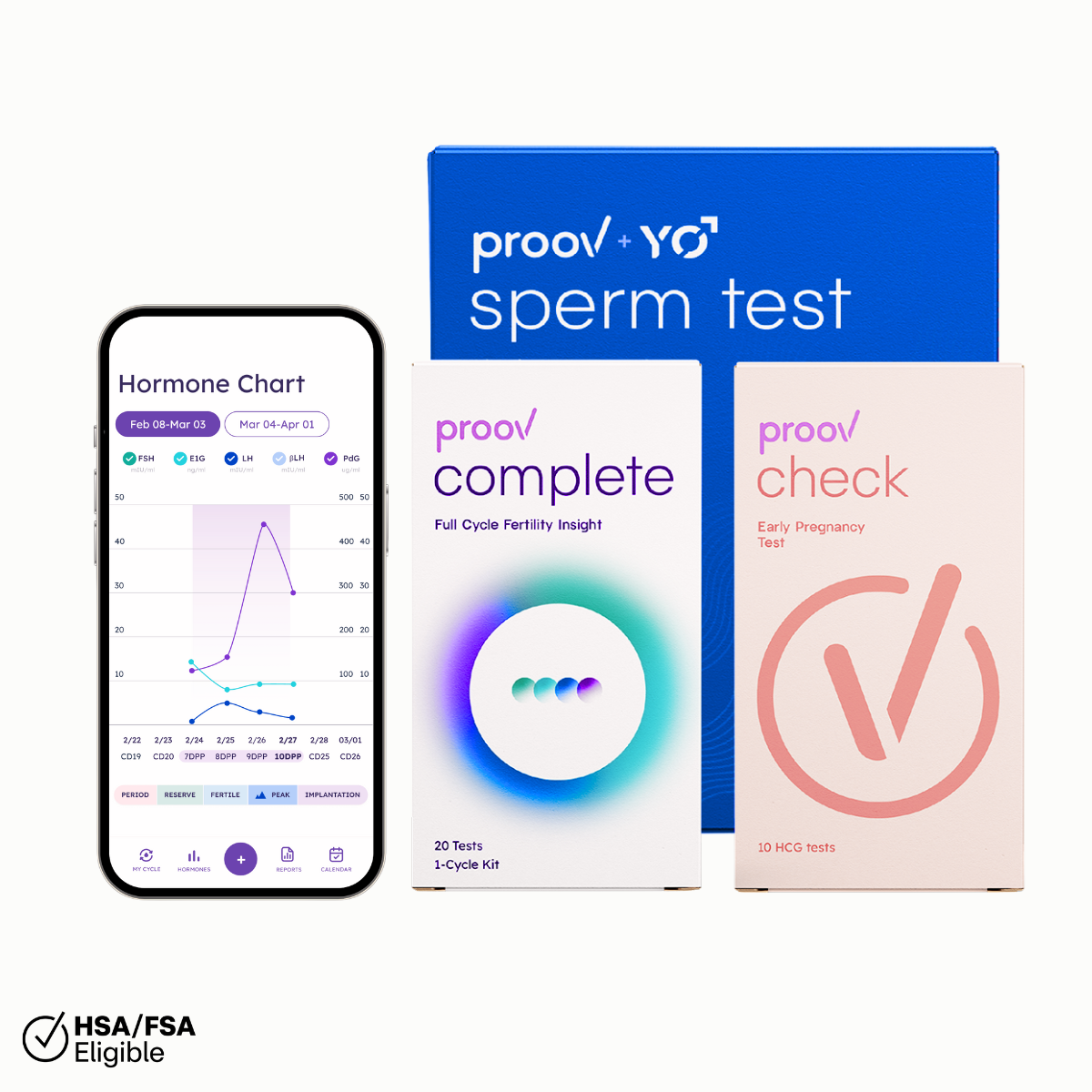Navigating the waters of perimenopause can feel like uncharted territory, especially when your menstrual cycle starts acting out of the ordinary. But fear not! Proov Empower is here to guide you through this transition. Let's get into irregular bleeding during perimenopause, a common and confusing symptom of this stage in your life.
What’s the difference between perimenopause and menopause, officially?
Menopause is the line between perimenopause and postmenopause; the moment you’ve gone 12 months without having a period, marking the end of your reproductive years. It typically occurs between the ages of 45 and 55, with the average menopause age range around 51. Before reaching menopause, women experience perimenopause, a transitional phase that can start as early as your mid-30s — and can bring on a range of confusing symptoms.
What does a regular menstrual cycle look like?
During your reproductive years, your menstrual cycle usually ranges from 21 to 35 days, with regular bleeding lasting from 4 to 7 days. Your period is a result of the shedding of the uterine lining when pregnancy doesn’t occur, orchestrated by a delicate balance of hormones like estrogen and progesterone. For most women, this cycle is fairly regular, although those with conditions like PCOS might experience irregular periods even during their reproductive years.
How will my period change in perimenopause?

As you enter early perimenopause, your hormone levels begin to fluctuate more unpredictably. Estrogen and progesterone levels can vary significantly, leading to changes in your menstrual cycle. You might notice irregular bleeding, spotting after your period, or even skipped periods. This happens because your body is gradually transitioning toward menopause, and these hormonal changes can make your cycle erratic.
In late perimenopause, these irregularities often become more pronounced. You might experience heavier or lighter periods, longer or shorter cycles, and more pronounced PMS symptoms. The hormone fluctuations during this stage are more intense as your ovaries produce less estrogen and progesterone, leading you closer to menopause.
Are there other common causes of irregular bleeding?
While perimenopausal bleeding is often due to hormonal changes, it’s important to rule out other potential causes. Conditions like fibroids, polyps, and even certain medications can contribute to irregular bleeding. If you notice any unusual patterns, it’s wise to consult your doctor to rule out other underlying issues.
Does irregular bleeding mean I’m in perimenopause?
Not necessarily. While irregular bleeding is a hallmark of perimenopause, it’s important to consider the full spectrum of perimenopause symptoms. Alongside changes in your menstrual cycle, you might experience changes in weight, mood, sleep, and skin. If you suspect you’re entering perimenopause, taking a perimenopause test, like Proov Empower, can provide clarity. These tests measure hormone levels to help determine if you're in the early stages of this transition.
How can I understand what’s happening with my body?
Testing your hormones is crucial to understanding your body and managing symptoms effectively. There are several methods available:
- Blood Tests: Blood tests are a common method for checking hormone levels. They provide accurate measurements of various hormones at a single point in time, including estrogen and progesterone, but this single point doesn’t give you the full picture of what’s happening with your body day by day. This type of test is typically performed in a lab or doctor's office and involves drawing a blood sample.
- Lab Tests: Lab tests might involve a series of blood, saliva, or urine tests. These can offer comprehensive insights into your hormone levels and fluctuations over time. Lab tests can be more detailed and provide a broader picture of your hormonal health, but they tend to be expensive, time-consuming, and delayed results can be an issue.
- At-Home Urine Tests: At-home urine tests, like those offered by Proov, are convenient, non-invasive, and don’t require a visit to the doctor. They measure hormone metabolites throughout your cycle, providing information on hormone production. This method is particularly useful for accurate testing and monitoring over several days or weeks.
When should I take a hormone test?
If you’re experiencing symptoms like irregular periods, spotting after your period, hair loss, or changes in sex drive, it might be time to consider testing your hormones. Knowing where you stand can empower you to take control of your health and navigate perimenopause with confidence.
One final note
Proov was created by women for women. We’re dedicated to helping you understand where you are in your perimenopause journey. Our Proov Empower testing provides reliable information so you can explore your options, from natural solutions to connecting with medical experts for prescriptions if needed. With quality customer care from women who understand, we're here to support you every step of the way.












